Filter by
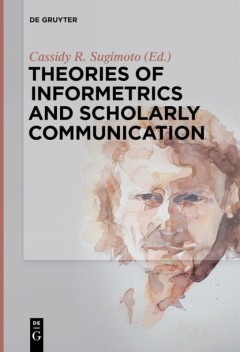
Theories of informetrics and scholarly communication
Scientometrics have become an essential element in the practice and evaluation of science and research, including both the evaluation of individuals and national assessment exercises. Yet, researchers and practitioners in this field have lacked clear theories to guide their work. As early as 1981, then doctoral student Blaise Cronin published The need for a theory of citing —a call to arms fo…
- Edition
- -
- ISBN/ISSN
- 9783110308464
- Collation
- 426 p.; 22 cm.
- Series Title
- -
- Call Number
- 020.727 THE t
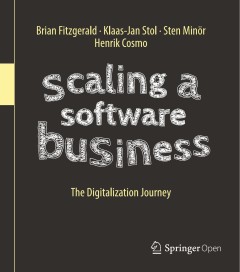
Scaling a software business : the digitalization journey
Software has changed the rules of the game. The world talks about the digitalization in industry and society – how the focus has shifted from producing tangible things towards software and services. This trend started many years ago, but is now affecting every company, whether it’s a software company or not. There are many companies that have already made a digitalization journey – and ma…
- Edition
- -
- ISBN/ISSN
- 9783319531168
- Collation
- 265p. : ill.
- Series Title
- -
- Call Number
- 005.1068 SCA s
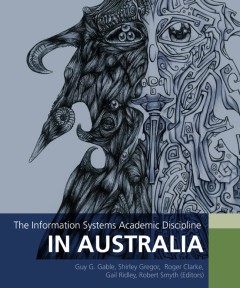
The information systems academic discipline in Australia
This book represents the second phase of a multi-method, multi-study of the ‘Information Systems Academic Discipline in Australia’. Drawing on Whitley’s Theory of Scientific Change, the study analysed the degree of ‘professionalisation’ of the Information Systems Discipline, the overarching research question being ‘To what extent is Information Systems a distinct and mature discipli…
- Edition
- -
- ISBN/ISSN
- 9781921313943
- Collation
- XXVII, 346
- Series Title
- -
- Call Number
- 004.6 INF i
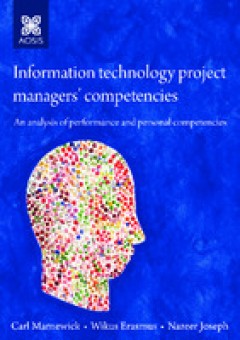
Information technology project managers' competencies : an analysis of perfor…
The purpose of this book is to shed light on the performance and personal competencies of information technology (IT) project managers in South Africa. Predictive models are built to determine what project managers consider the crucial competencies they should possess to deliver an IT project successfully. This investigation takes place in the context of poor IT project success rates globally a…
- Edition
- -
- ISBN/ISSN
- 9781928396055
- Collation
- XXV, 241 p.
- Series Title
- -
- Call Number
- 658.4092 MAR i
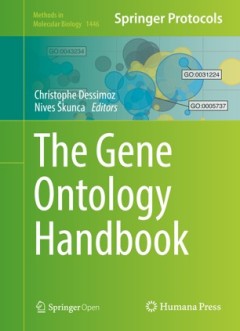
The gene ontology handbook
This book provides a practical and self-contained overview of the Gene Ontology (GO), the leading project to organize biological knowledge on genes and their products across genomic resources. Written for biologists and bioinformaticians, it covers the state-of-the-art of how GO annotations are made, how they are evaluated, and what sort of analyses can and cannot be done with the GO. In the sp…
- Edition
- -
- ISBN/ISSN
- 9781493937431
- Collation
- xii, 305p. : ill.
- Series Title
- -
- Call Number
- 572.80285 GEN g
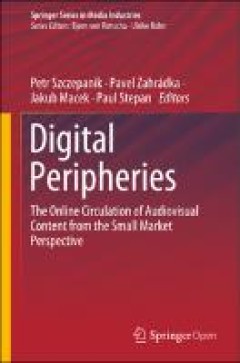
Digital peripheries : the online circulation of audiovisual content from the …
This is an open access book. Media industry research and EU policymaking are predominantly tailored to large (and, in the latter case, Western) European markets. This open access book addresses the specific qualities of smaller media markets, highlighting their vulnerability to global digital competition and outlining survival strategies for them. New online distribution models and new trends i…
- Edition
- -
- ISBN/ISSN
- 9783030448509
- Collation
- XI, 302 p.
- Series Title
- Springer Series in Media Industries
- Call Number
- 302.231 DIG d
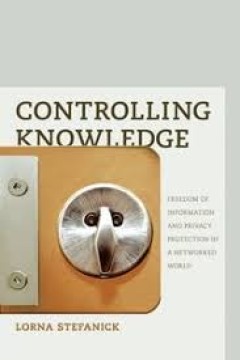
Controlling knowledge freedom of information and privacy protection in a netw…
Digital communications technology has immeasurably enhanced our capacity to store, retrieve, and exchange information. But who controls our access to information, and who decides what others have a right to know about us? In Controlling Knowledge, author Lorna Stefanick offers a thought-provoking and user-friendly overview of the regulatory regime that currently governs freedom of information a…
- Edition
- -
- ISBN/ISSN
- 9781926836270
- Collation
- -
- Series Title
- -
- Call Number
- 342.0853 STE c
Past, present and future of historical information science
This book evaluates the results of two decades of research in ‘history and computing’. In spite of the fact that a lot has been accomplished, the report indicates critical places for improvement. Many historians and other humanities scholars seem satisfied with standard office tools, which do not always suit their complex sources and research questions. While more and more archival sources …
- Edition
- -
- ISBN/ISSN
- 9069844133
- Collation
- 129p.: ill.
- Series Title
- -
- Call Number
- 020.9 BOO p
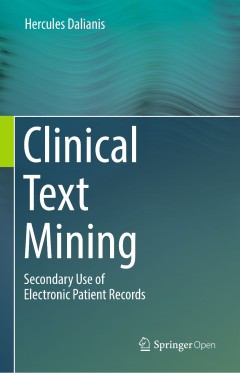
Clinical text mining : secondary use of electronic patient records
This open access book describes the results of natural language processing and machine learning methods applied to clinical text from electronic patient records. It is divided into twelve chapters. Chapters 1-4 discuss the history and background of the original paper-based patient records, their purpose, and how they are written and structured. These initial chapters do not require any techn…
- Edition
- -
- ISBN/ISSN
- 9783319785035
- Collation
- xvii, 181p. : ill.
- Series Title
- -
- Call Number
- 006.312 DAL c
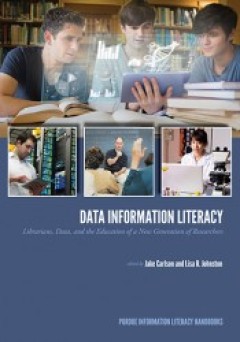
Data information literacy : librarians, data, and the education of a new gene…
Given the increasing attention to managing, publishing, and preserving research datasets as scholarly assets, what competencies in working with research data will graduate students in STEM disciplines need to be successful in their fields? And what role can librarians play in helping students attain these competencies? In addressing these questions, this book articulates a new area of opportuni…
- Edition
- -
- ISBN/ISSN
- 9781612493527
- Collation
- x, 271p. : ill.
- Series Title
- -
- Call Number
- 028.70711 DAT d
 Computer Science, Information & General Works
Computer Science, Information & General Works  Philosophy & Psychology
Philosophy & Psychology  Religion
Religion  Social Sciences
Social Sciences  Language
Language  Pure Science
Pure Science  Applied Sciences
Applied Sciences  Art & Recreation
Art & Recreation  Literature
Literature  History & Geography
History & Geography